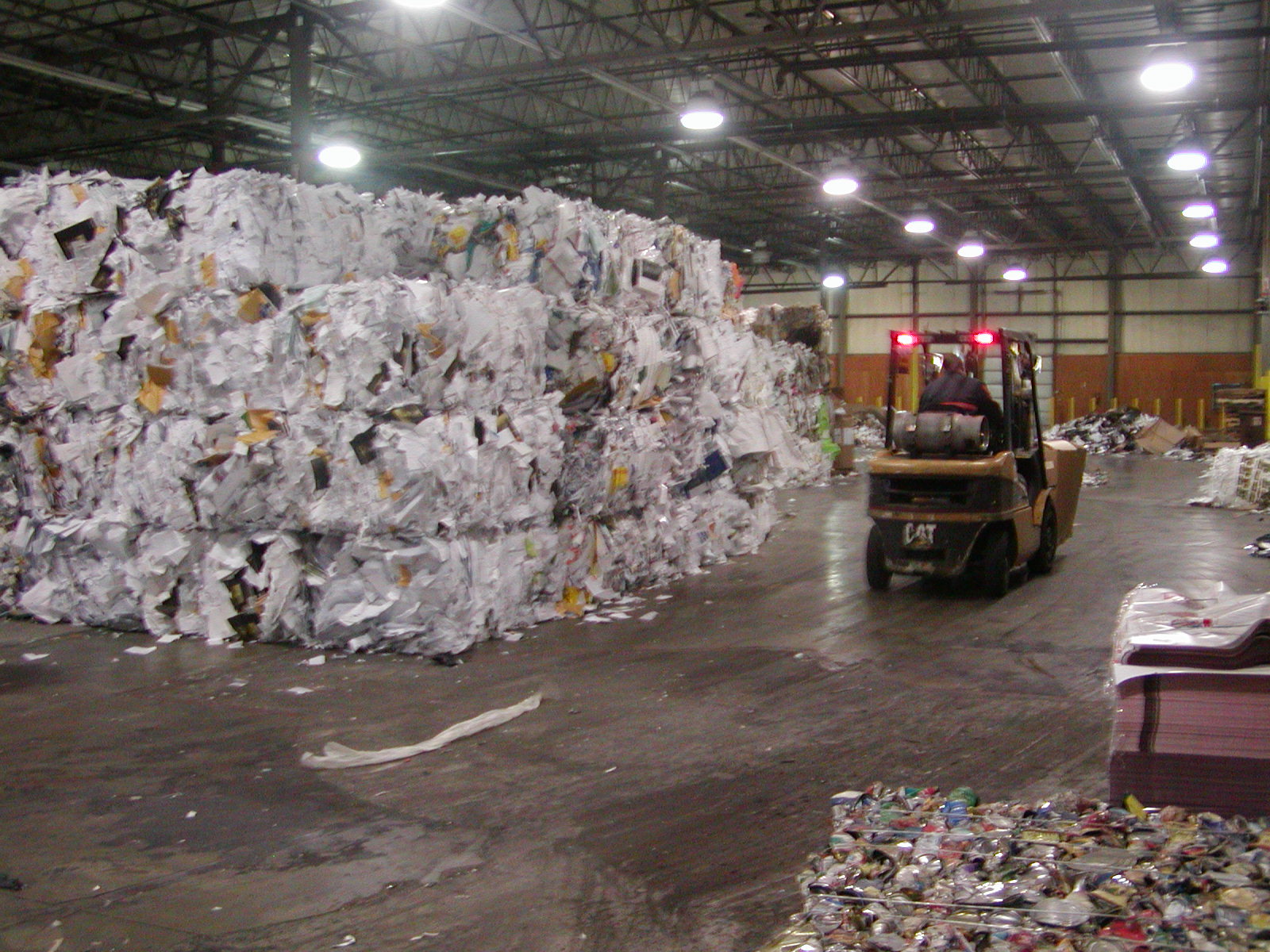Compared to plenty of other industries, commercial recycling is relatively stable. Recyclers spend every day collecting, sorting and processing waste materials, the same thing we’ve been doing for decades. That being said, commercial recyclers have seen some disruption in recent years. New technology, new recycling regulations, and new import/export policies have all impacted commercial recyclers, which then impact our customers. Here’s a roundup of recent stats and updates about the current state of commercial recycling.
All eyes on electronic waste
It’s probably no surprise to learn that electronic waste is the fastest-growing solid waste stream in the world (according to the World Health Organization). E-waste is growing at a rate three times the rate of the global population. It’s just going to keep growing and growing.
For commercial recyclers, e-waste is an inevitable but challenging part of the waste stream. Think about how many individual models of electronic devices exist, and how many materials they’re made from. Sorting and breaking down electronics into their parts is a labor-intensive and dangerous job. It’s not safe for recyclers to crack open devices that may contain hazardous chemicals. Many electronics include components made of hard-to-recycle plastics, and small amounts of precious metals that need to be recovered. It’s much more complex than recycling scrap metal or cardboard. The good news is that researchers have been working on solutions, like AI algorithms and robotic technologies, to analyze and dismantle electronics. It will be interesting to see what the e-waste recycling process looks like in five years.
Finally, the World Health Organization has worked to shed light on the health and environmental risks of improper e-waste disposal. Improper disposal would include things like dumping electronics in landfills, abandoning them in deserted areas, burning them, stripping them with acid in an unsafe way, etc. These practices, especially burning e-waste, can release extremely dangerous pollutants into the environment. Those airborne pollutants can then travel great distances, exposing many people to chemicals. Children and pregnant women are especially vulnerable to developing health effects from e-waste pollutants. Recycling e-waste properly is a public health issue.
Scrap metal remains steady
The scrap metal markets are always changing and causing scrap prices to fluctuate. But, we haven’t seen any big pricing swings or new trends in scrap metal recycling recently. Metal remains consistently valuable because it’s readily recyclable. It’s easier to melt down metal and reshape it, compared to creating new metal. Recycling is also a much more sustainable practice than mining for raw materials. For example: it takes 95 percent less energy to make recycled aluminum than new aluminum. Creating recycled steel takes 60% less production energy than making new steel. Recycling scrap is still good for your business’s bottom line and good for the planet.
Massachusetts’s organic waste ban sets an example
While many states have implemented organic waste bans in recent years, recent research from Science shows that Massachusetts’s ban has been the most successful. Researchers analyzed results from the first five states to enact organic waste bans. Four states have seen negligible reductions in the amount of food waste that has been diverted. However, Massachusetts reduced its food waste by 13.2% in the last 10 years. It’s encouraging to know that our organic waste ban is actually working. Diverting food and landscaping waste from landfills is worth doing, even if your organization doesn’t generate enough of this material to be subject to the ban.
Some other takeaways about the state of commercial recycling include:
- China’s National Sword policy has now been in effect for more than six years, but the global commercial recycling industry is still adjusting to it. (As a refresher, this policy created much stricter standards for the kinds of recyclables that China imports.) Because so much of the world’s plastic and other recyclable waste used to end up in China, it has become a huge challenge for exporters to find other ways to dispose of certain materials.
- About 5 times more people recycle today than in 1960.
- Younger employees strongly value corporate sustainability. A few pieces of recent research suggest that many millennial and Gen Z employees feel so strongly about environmental issues that these values help shape their employment decisions. It’s just something to keep in mind: many customers and employees care a lot about whether a business has good recycling practices. Don’t let a lack of strong recycling practices be the tipping point that sends a good job applicant to another employer.
Does Your Massachusetts Business Need Commercial Recycling?
Miller Recycling can help your organization with whatever commercial recycling services you need, from meeting your sustainability goals to implementing a more cost-effective recycling process at your facility. If you have questions about our services, or how the current state of the commercial recycling industry affects your bottom line, I’m happy to help. Contact me today.


